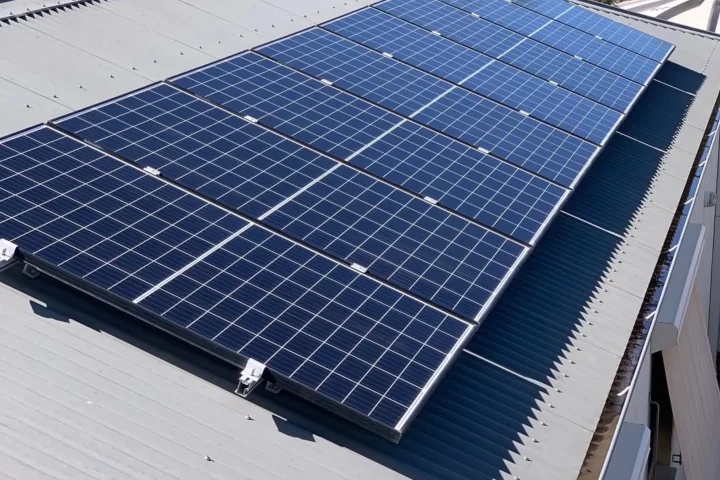Solar panels are a great investment for homeowners and businesses looking to save on electricity bills and reduce their carbon footprint. However, like any outdoor equipment, solar panels need maintenance to function optimally. One common question among solar panel owners is: does rain clean solar panels? In this article, we will look into the impact of rain on solar panel cleanliness and efficiency, if rain is enough for maintenance and best practices to clean your panels.
How Rain Cleans Solar Panels
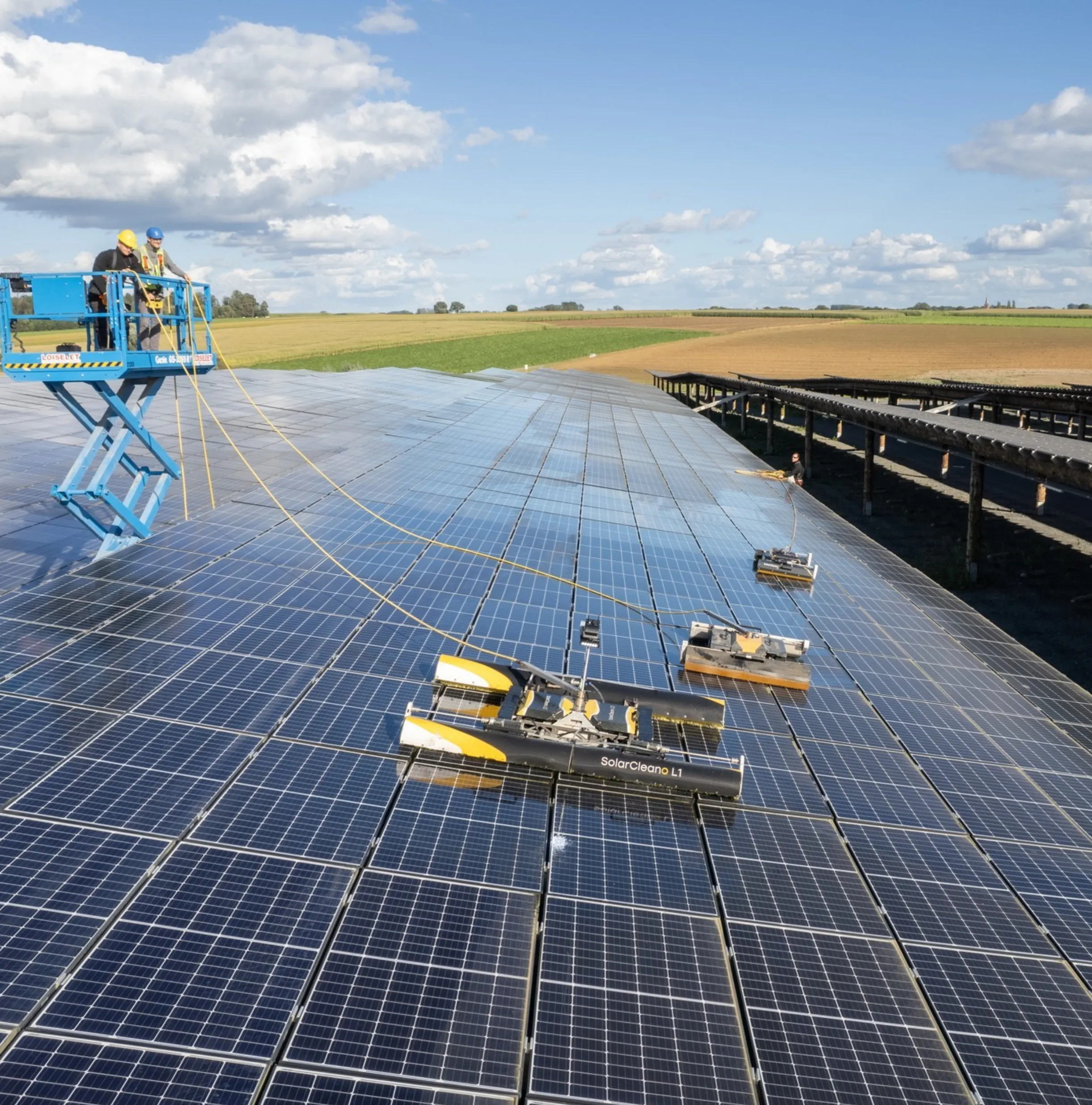
Rain can be a natural rinse for solar panels, washing away some dust, dirt and airborne particles that accumulate over time. However, while rainwater can remove loose debris, it’s not always enough to fully clean solar panels especially in areas with high pollution, dust or bird droppings.
Factors That Affects Rain’s Cleaning Effectiveness
Several factors determines if rainwater alone can keep solar panels clean:
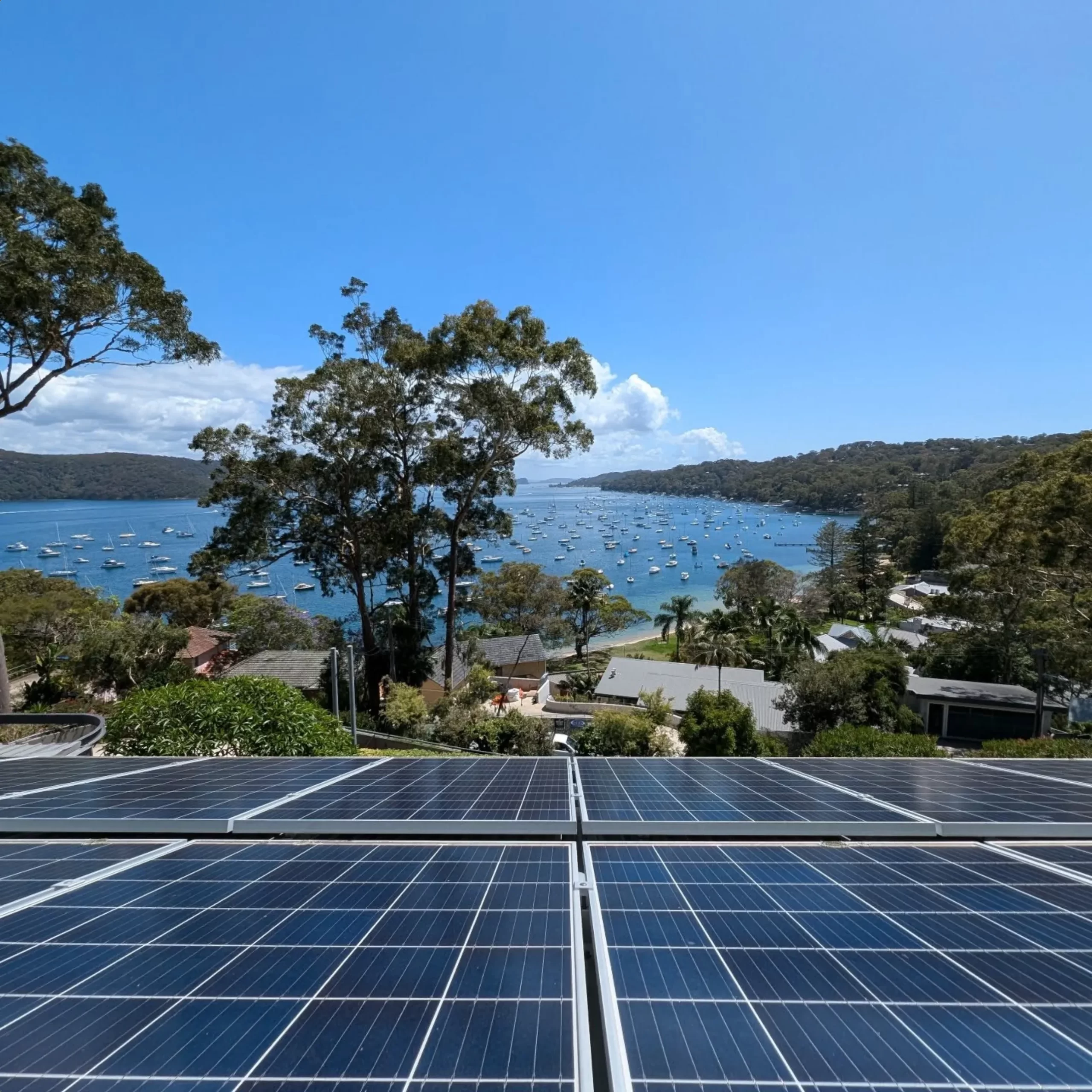
- Angle of Installation: Panels installed at a steeper angle allows rainwater to run off more effectively, removing some debris. Flat panels may allow dirt and water to pile up, resulting to residue buildup.
- Location and Air Quality: Areas with high levels of pollution, dust or pollen may experience faster dirt accumulation that rain alone cannot clean.
- Rainwater Quality: Rainwater in urban areas or regions with acid rain may leave behind mineral deposits which can affect solar panel performance.
- Type of Debris: While rain can wash away dust and pollen, it may not be effective against sticky substances like bird dropping, tree sap and dirt accumulation from nearby trees or branches.
- Proximity to Facades: Buildings with facades that accumulate dust and grime may add to the buildup on solar panels and may need periodic facade cleaning services.
Does Rain Improve Solar Panel Efficiency?
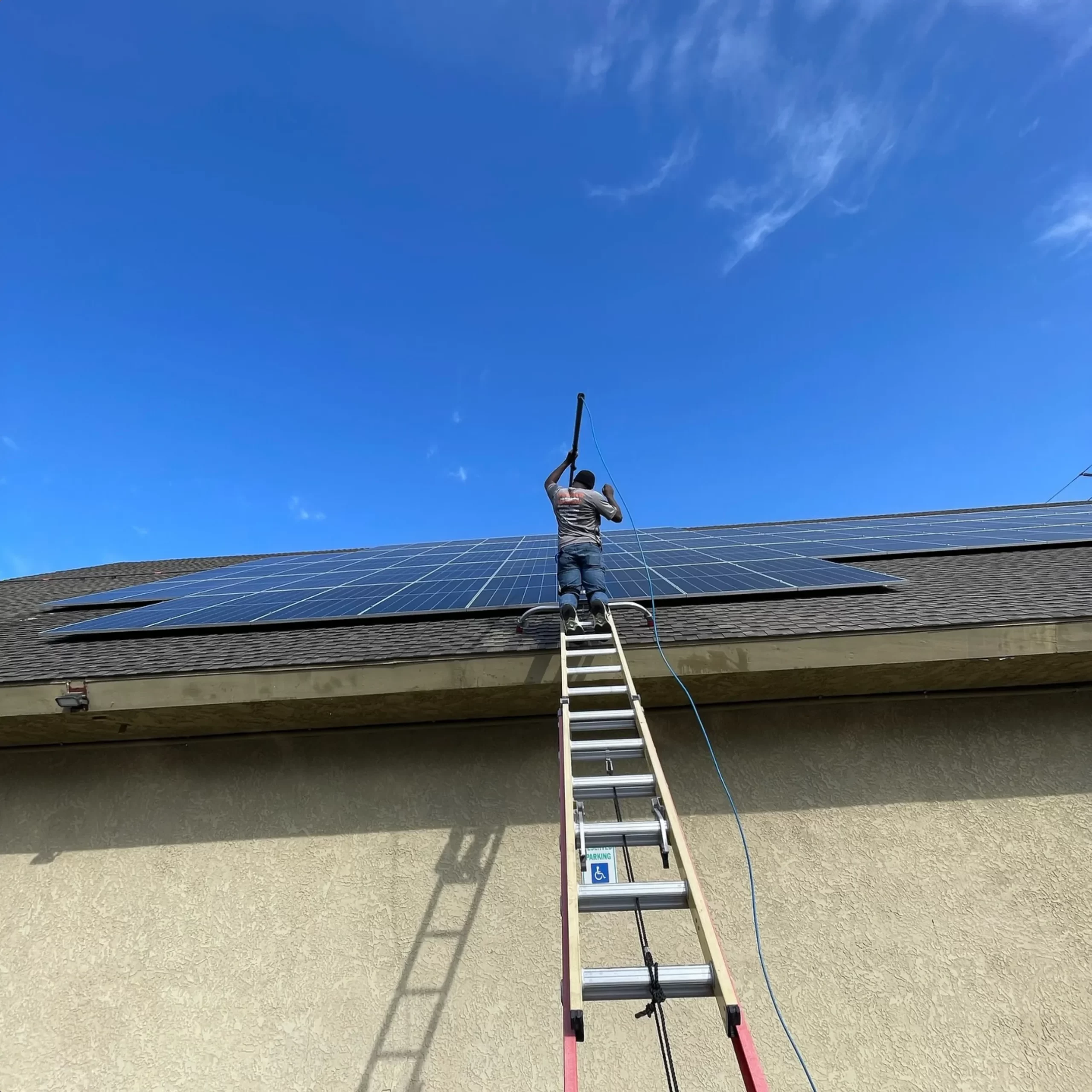
While a light rain can get rid of some surface dust, it doesn’t always translate to a big boost in efficiency. In fact, partially cleaned panels can still suffer from reduced sunlight absorption due to residual grime. Studies show that solar panel efficiency can drop by up to 25% if not maintained properly, especially in dry and dusty areas.
When Additional Cleaning is Required
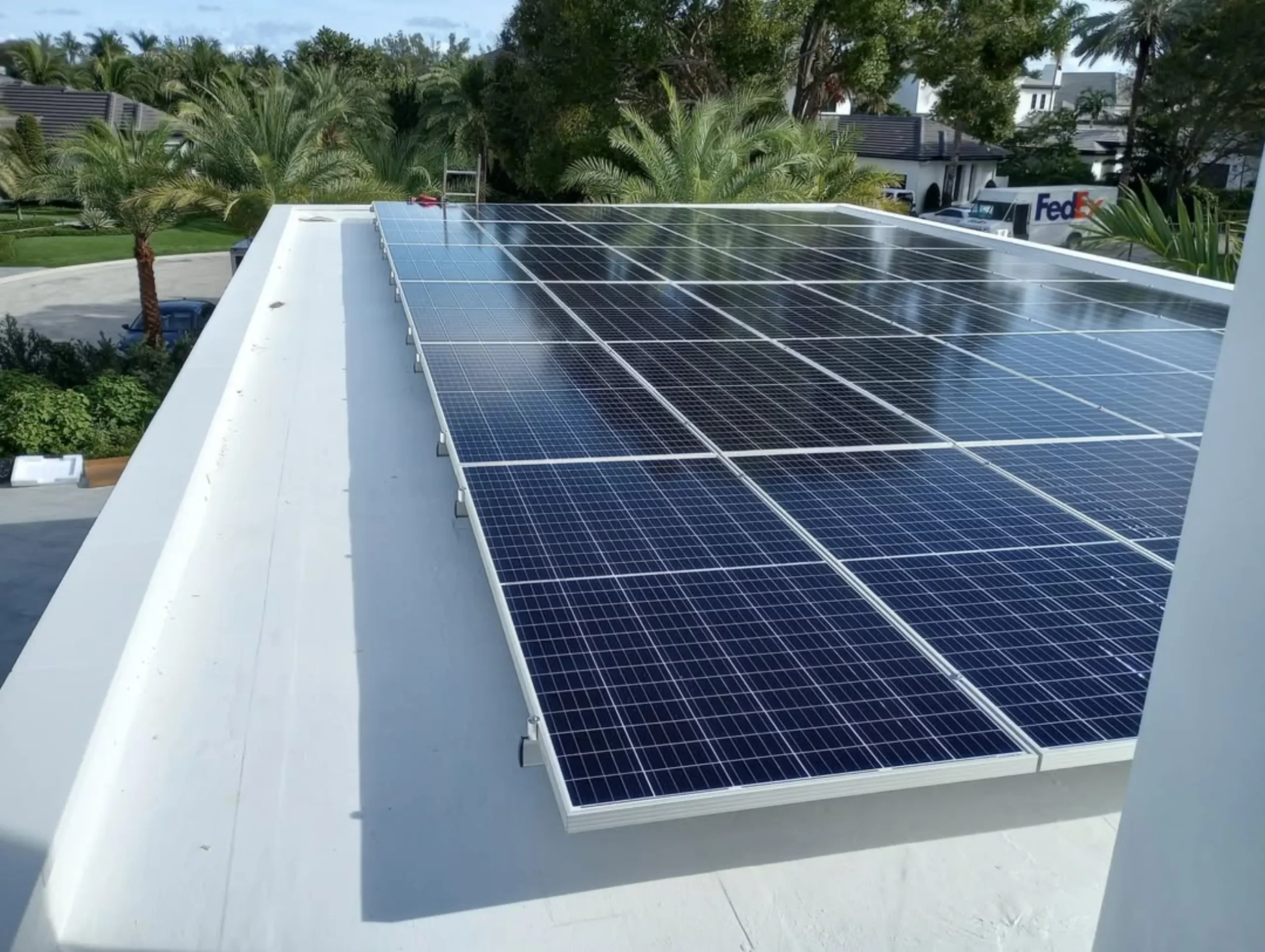
Even in areas with frequent rain, solar panels may need manual cleaning under the following conditions:
- Long Drought: If there has been no rain for a long time, dust accumulation, dirt buildup and excess dust can reduce efficiency.
- Bird Droppings and Tree Debris: Rain cannot remove these, needs manual scrubbing or professional cleaning services.
- Hard Water Stains: Mineral deposits from rainwater can leave streaks that affect performance.
- Near Construction Sites or Busy Highways: Dust particles and black dust from these areas can coat the panels and reduce solar energy production.
- Grime Buildup: In some cases, pressure washing services may be needed to remove stubborn layers of dirt that accumulate over time.
Best Practices for Keeping Solar Panels Clean
To maintain optimal solar panel efficiency, follow these practices:
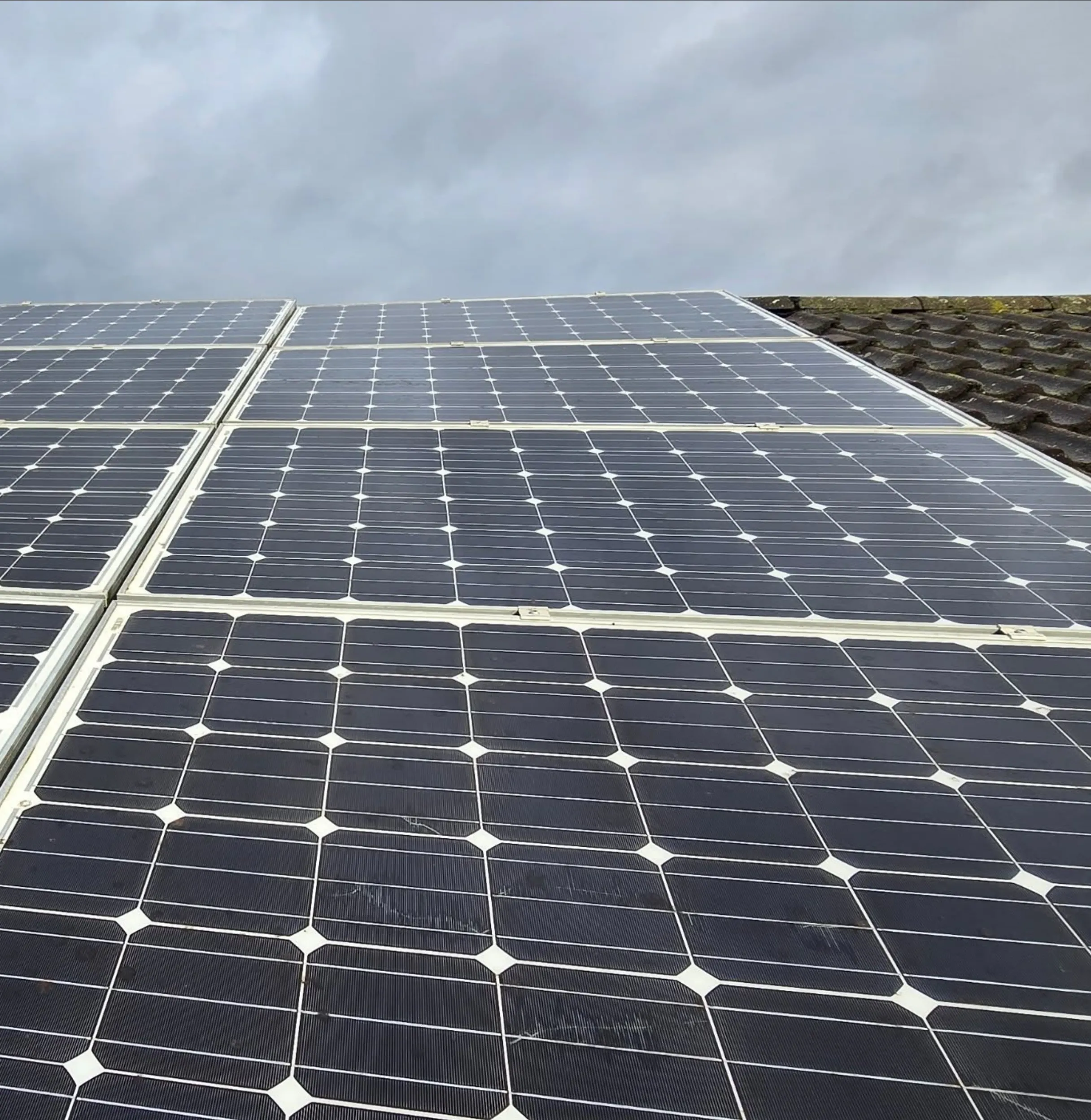
- Regular Inspections – Check for debris, dust, bird droppings, and dirt smudges every few months.
- Manual Cleaning – If needed, use soft cloth, mild detergent or soapy water to clean without scratching.
- Professional Cleaning Services – In areas with high pollution, heavy rain or hard to reach panels, consider hiring a solar panel cleaning service.
- Tilted Panel Installation – Install panels at the right angle to allow natural rain to wash away dirt more effectively.
- Rainwater Collection Systems – Redirect clean rainwater to rinse solar panels can be an eco-friendly maintenance solution.
- Avoid Harsh Chemicals – Chemical cleaners or abrasive cleaners can damage the panels permanently.
- Outdoor Pressure Cleaning – In cases where traditional cleaning methods are not enough, outdoor pressure cleaning can remove stubborn dirt and grime.
- Follow the Manufacturer’s Instructions – Always check the manual for solar panel maintenance to prevent performance deterioration.
Conclusion
Rain can clean your solar panels a little bit, but not enough to keep them optimum. Light debris and dust may be washed away, but stubborn dirt, bird droppings, tree sap and mineral deposits need more cleaning. Regular maintenance, including frequent cleaning and annual cleaning by a professional cleaner is essential to get the most out of your solar panels. If you want to get the most from your solar investment, schedule regular cleaning to keep them at peak performance and energy savings.
FAQ
Can I rely on rain to clean my solar panels?
Rain can remove dust and loose debris, but not enough to keep solar panels clean, especially in areas with high pollution, bird activity or dry conditions.
How often should I clean my solar panels?
It depends on your location and environmental conditions. In dusty areas, panels may need cleaning every 3-6 months, other areas may need cleaning once or twice a year. Regular maintenance is key to efficiency over time.
What is the best way to clean solar panels?
Use a soft cloth, non-abrasive cleaning agent, deionized water or mild detergent to remove stubborn dirt. Avoid high pressure water jets, pressure washers or harsh chemicals that can damage the panels.
Does dirt and debris affect solar panel efficiency?
Yes, dirt and debris can block sunlight, reducing energy production and performance by up to 25%, so regular cleaning and solar panel maintenance is important.
Should I hire a professional to clean my solar panels?
If your panels are hard to access, on a flat roof or exposed to frequent dust coverage and dirt particles, hiring a professional cleaning service makes sense and financially makes sense. They use the right cleaning tools and methods to avoid damage during cleaning.
